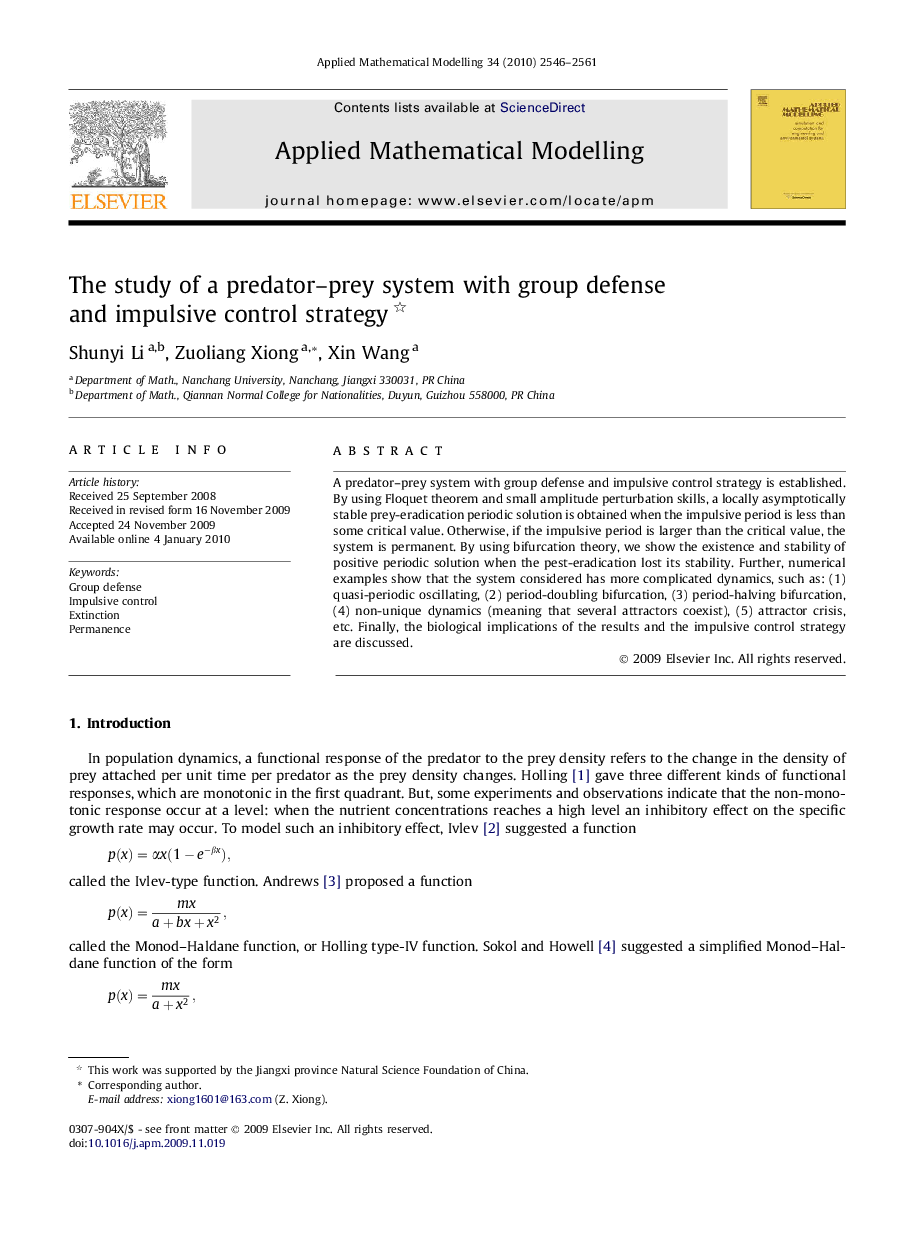| Article ID | Journal | Published Year | Pages | File Type |
|---|---|---|---|---|
| 1705920 | Applied Mathematical Modelling | 2010 | 16 Pages |
A predator–prey system with group defense and impulsive control strategy is established. By using Floquet theorem and small amplitude perturbation skills, a locally asymptotically stable prey-eradication periodic solution is obtained when the impulsive period is less than some critical value. Otherwise, if the impulsive period is larger than the critical value, the system is permanent. By using bifurcation theory, we show the existence and stability of positive periodic solution when the pest-eradication lost its stability. Further, numerical examples show that the system considered has more complicated dynamics, such as: (1) quasi-periodic oscillating, (2) period-doubling bifurcation, (3) period-halving bifurcation, (4) non-unique dynamics (meaning that several attractors coexist), (5) attractor crisis, etc. Finally, the biological implications of the results and the impulsive control strategy are discussed.
